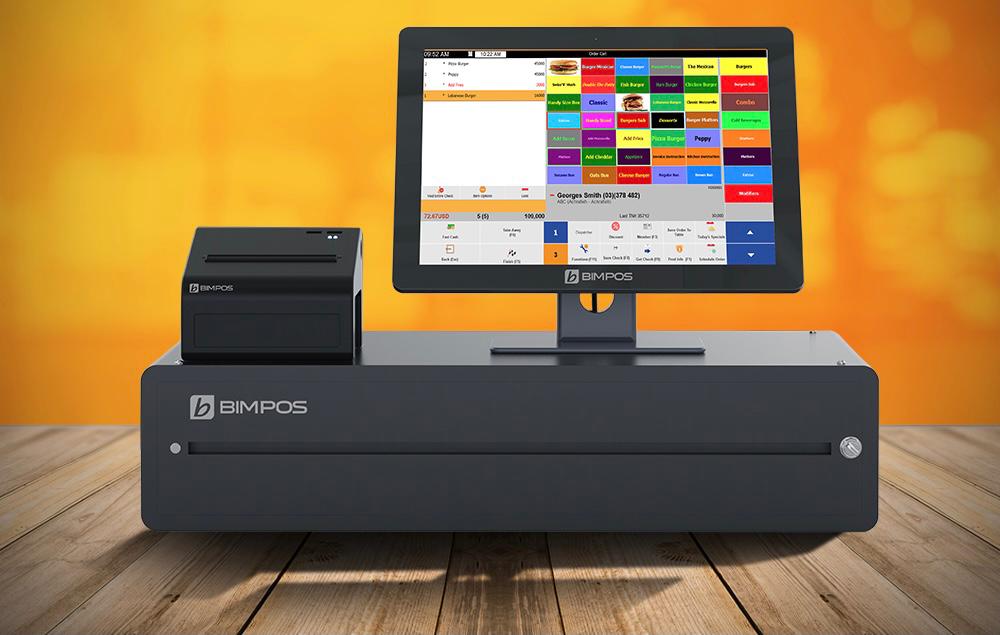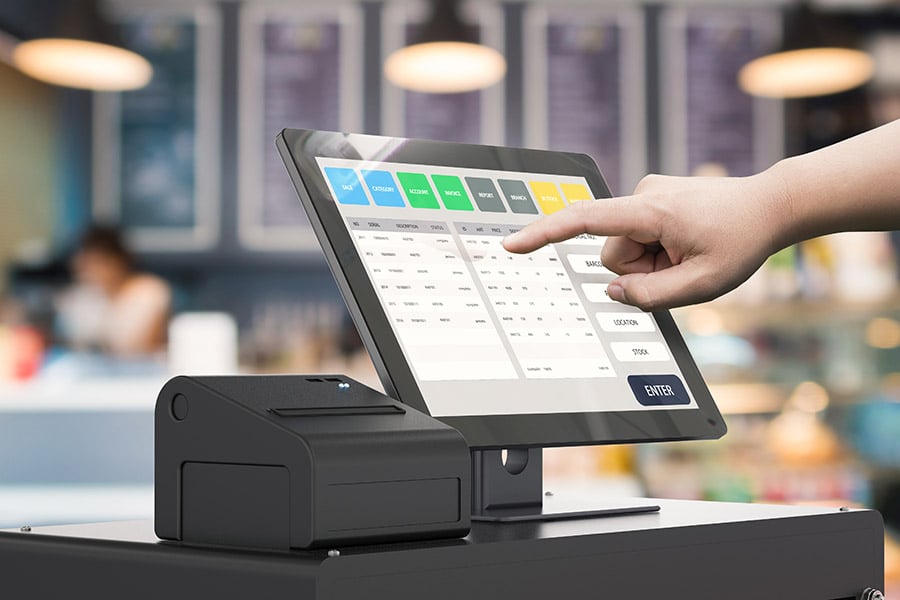The Definitive Guide to Point Of Sale
The Definitive Guide to Point Of Sale
Blog Article
The Ultimate Guide To Point Of Sale Systems

Point of Sale: Retail Point-Of-Sale Solutions Streamline Deals
Not known Facts About Point Of Sale Software

Hardware Elements of a Point of Sale System What makes a POS system tick? It's not simply software; the hardware plays a starring function. Believe of it as the body to the software's brain. Without the ideal hardware, even the most advanced POS software is just a pretty face. Important POS Hardware So, what are the must-haves? Let's break it down. The main processing system, typically a computer or tablet, is the heart of the operation. The display or touchscreen show enables staff to connect with the system. A barcode scanner accelerate the checkout procedure. Remember the days of by hand getting in each code? The reliable receipt printer offers customers with a record of their purchase. A cash drawer keeps your cash safe and arranged. A card reader allows customers to pay with credit or debit cards. Diving Deeper: Beyond the Basics But wait, there's more! Depending upon your service, you may require specific hardware. A dining establishment might incorporate cooking area printers to relay orders, while a retail store might utilize label printers for product tagging. Ever question how your local bakeshop quickly prints those delicious-looking labels? Selecting the Right Hardware: A Balancing Act Picking the ideal hardware isn't almost purchasing the most expensive equipment. It has to do with finding the sweet area between performance, durability, and budget. A small company just starting out may opt for a more basic setup, while a high-volume seller will require robust, high-performance makers. Is it better to buy new or used? Consider your options thoroughly. A new system uses the newest technology and guarantee protection, but a reconditioned system can save you cash. click here The Future of POS Hardware What does the future hold? Anticipate to see much more combination with mobile phones, biometric scanners for employee authentication, and advanced analytics control panels showed on bigger, clearer screens. Imagine a world where inventory is instantly upgraded in real-time as products are scanned-- a world where you can track your best-selling product from throughout the world. The possibilities are endless, and the hardware is continually evolving to meet the demands of today's organizations. Are you all set to update your point of sale system?
Software Features and Capabilities: The Heart of Your POS System
Ever watch an experienced barista slide through a busy early morning rush? Their secret isn't simply caffeine; it's a smooth dance with their POS system. The software is the conductor of your business symphony, managing whatever from sales to stock. However what notes should you be listening for? What abilities really matter in today's market?
Stock Management: Beyond Counting Beans
Forget spreadsheets that haunt your dreams. Modern POS systems use real-time stock tracking, signaling you when your stock of artisanal coffee beans dips precariously low. Think about it as a digital guardian angel, preventing those uncomfortable "Sorry, we're out!" minutes to consumers. What if you could likewise forecast need based on historical information? Many systems now use forecasting tools, an effective weapon versus overstocking and lost sales. This helps prevent the predicament of running out of popular products or building up excess inventory of slow-moving items, both of which can constrain cash circulation and space.
Sales Reporting and Analytics: Deciphering the Information
Sales information is the new gold, and your POS system is the miner. Forget simply knowing how much you sold today. Dive deep into the information to reveal patterns, recognize your very popular products, and comprehend client habits. Which menu product pairs completely with the everyday special? Which promotion resonated most with your clientele? These insights are not just intriguing; they're actionable intelligence. Without reputable sales reporting, navigating the intricacies of service decision-making becomes like cruising without a compass, increasing the possibility of bad moves and missed out on opportunities.
Customer Relationship Management (CRM): Structure Bridges, Not Walls
Keeping in mind a routine consumer's name and favorite order is captivating, but scaling that individual touch is tricky. POS systems with CRM abilities permit you to track customer purchase history, preferences, and even birthdays. Picture immediately offering a discount on their birthday-- a small gesture that fosters commitment and encourages repeat company. There is the prospective snag of bad data quality, which can lead to inaccurate consumer profiles and inefficient marketing efforts.
Payment Processing: Simplifying the Transaction
The checkout experience can make or break a sale. Seamless combination with numerous payment approaches-- credit cards, mobile wallets, even copyright-- is non-negotiable. Can your system deal with split payments? Does it provide safe tokenization to secure customer information? A cumbersome payment process resembles hitting a sour note in your company symphony, potentially interfering with the whole efficiency. Making sure compatibility with developing payment innovations and adherence to security requirements are vital for preserving consumer trust and functional effectiveness.
Worker Management: Keeping the Team in Sync
From clocking in and out to managing consents and tracking efficiency, staff member management features streamline operations and improve accountability. Is scheduling a problem? Numerous POS systems use integrated scheduling tools, enhancing staffing levels based on predicted need. A typical obstacle that is frequently neglected is the obstacle of incorporating employee management functionalities with payroll systems, which can lead to mistakes and inadequacies in wage calculations.
Advanced Characteristics: Leveling Up Your Operations
- Table Management: Ideal for dining establishments, this feature permits you to envision your dining space, track table status, and handle reservations.
- Commitment Programs: Reward your best customers and motivate repeat service with incorporated loyalty programs.
- Online Buying Integration: Effortlessly incorporate your POS system with online buying platforms to broaden your reach.
Picking the best POS system is about more than just functionality; it has to do with discovering a partner that can grow with your company. Consider your existing needs, anticipate future development, and don't hesitate to ask the hard questions. The right software application can change your organization from a disorderly cacophony into a harmonious masterpiece.
Industry-Specific POS System Applications
Think about the regional pastry shop, bustling with early morning consumers craving fresh croissants. A generic POS system might manage transactions, but can it handle intricate dishes, track component stock, or immediately change production schedules based upon sales data? Most likely not. That is where the beauty of industry-specific POS systems shines.
Dining establishments and Hospitality
For busy dining establishments, speed and precision are vital. The number of times have you seen servers handling orders, adjustments, and splitting costs, all while attempting to offer outstanding service? A restaurant POS system streamlines these procedures, enabling for table management, kitchen order tickets, and even online buying integration. These systems frequently include functions like ingredient-level stock tracking, vital for managing food costs and decreasing waste. Ever wonder why your preferred dish is in some cases not available? It may come from an absence of appropriate inventory management.
- Table Management
- Kitchen Order Tickets
- Online Buying Combination
- Ingredient-Level Inventory Tracking
Retail Solutions
Retail, with its diverse inventory and customer interactions, demands a different set of tools. Envision a store clothing store having a hard time to track sizes, colors, and seasonal collections using a basic checkout system. An industry-specific retail POS system offers functions like barcode scanning, client loyalty programs, and detailed sales reporting. These systems can even integrate with e-commerce platforms, supplying a seamless omnichannel experience for customers. Did you understand some retail POS systems can predict future sales trends based upon historic data? Now that is powerful!
The Perils of a Mismatch
Choosing the incorrect POS system can develop substantial operational hurdles. A clothes store utilizing a dining establishment POS, for instance, would find it inappropriate for handling stock with sizes and colors. The lack of proper reporting and analytics could cause misinformed purchasing decisions and lost profits. The result might be similar to trying to fit a square peg in a round hole.
Secret Factors to consider
Picking an industry-specific POS system needs careful examination. Consider your company's special needs and operational workflows. Does the system incorporate with existing software? Does it use the required reporting abilities? Is it scalable to accommodate future development? A well-chosen POS system is not just a deal tool; it's a strategic property that can drive efficiency, enhance customer fulfillment, and ultimately, improve your bottom line. Remember, it is an investment in your service's future, not simply an expenditure.
Security Factors To Consider for Point of Sale Systems
Ever heard the tale of the mom-and-pop store that lost everything due to the fact that of a single, neglected security flaw in their POS system!.?. !? It's a cautionary tale, and it highlights a crucial aspect frequently overshadowed by the attraction of fancy features and structured operations. The reality is, a POS system is only as great as its security. What great is a system that crunches numbers in a flash if it enables wrongdoers to swipe client's data just as rapidly?
The Vulnerability Minefield
The digital landscape is a battlefield. Every POS system, no matter size or elegance, is a prospective target. Are you genuinely prepared for the threats lurking around the corner? The genuine pinch comes when you find that your outdated software has a gaping hole that hackers can make use of, turning your service into an unwitting accomplice in identity theft. The problem is that hackers are crafty and are always changing their techniques.
Common Security Gaps and Specialist Tips
- Weak Passwords: "Password123" isn't cutting it. Usage strong, distinct passwords for all POS system accounts and alter them frequently. Two-factor authentication is a must.
- Unsecured Networks: Your Wi-Fi resembles leaving the front door open. Secure your network with strong file encryption (WPA3 if possible) and consider a separate network for your POS system.
- Out-of-date Software: Software suppliers patch security holes all the time. Stopping working to update resembles inviting difficulty. Establish automated updates or schedule regular maintenance.
- Employee Training: Your staff is your first line of defense. Train them to acknowledge phishing efforts, secure passwords, and report suspicious activity.
Data File Encryption: Your Guard Versus the Dark Arts
Consider data file encryption as a secret code. It scrambles delicate details, like credit card numbers, making it unreadable to unapproved users. Without encryption, your consumers' financial details resemble sitting ducks, ripe for the selecting by cybercriminals. It's not just about securing your customers; it has to do with protecting your track record and avoiding substantial fines.
PCI Compliance: The Rulebook You Can't Neglect
If you accept charge card, you're bound by the Payment Card Market Data Security Requirement (PCI DSS) It's a set of security standards designed to protect cardholder data. Stopping working to comply can lead to fines, charges, and even the loss of your ability to process credit card payments. It's a headache, yes, however it's a necessary one. Think about PCI compliance as the expense of doing organization in the digital age.
Consider this: every deal processed through your point of sale is a possible entry point for destructive actors. By carrying out robust security measures, you're not simply safeguarding your organization; you're safeguarding your customers' trust and making sure the long-term practicality of your operations. The security of your POS system isn't simply a technical problem; it's a company imperative. It requires consistent watchfulness, proactive procedures, and a commitment to staying ahead of the curve.